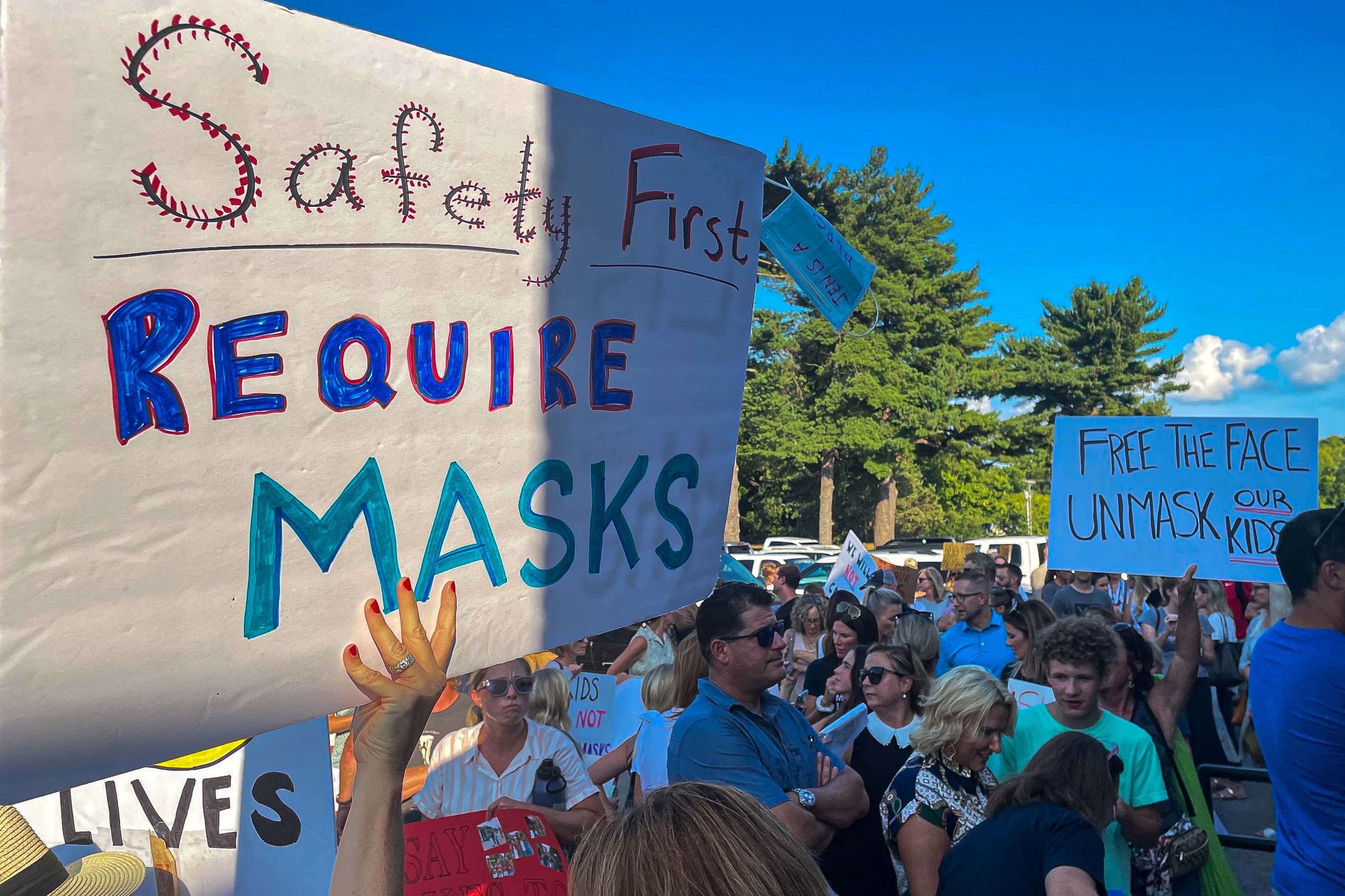School board races across Tennessee can become partisan contests under a measure approved Friday by the GOP-controlled legislature.
The bill, co-sponsored by the legislature’s top leaders, passed 52-39 in the House and 20-10 in the Senate. It is expected to be signed into law by Republican Gov. Bill Lee.
The measure lets local political parties decide whether to put forth school board candidates with Republican or Democratic labels beginning next year, when half of school board races will be held across Tennessee. Candidates also could run as independents. But the legislation does not require partisan races, as one earlier proposal would have done.
It’s one of a bundle of bills approved during a special session called by Republican lawmakers to curb or preempt COVID restrictions such as mask and vaccine mandates for schools, businesses, and government entities.
Their petition for a special session was wide enough in scope to consider the school board bill, however, after many of those local meetings have turned into ideological battlegrounds over school mask mandates and how to teach students about racism.
Proponents said party labels will take the guesswork out of school board elections and give voters more information to select candidates who reflect their ideals for one of the most important policy jobs in their communities.
“Some try to argue that school boards are somehow apolitical because they don’t have an R or a D beside their names. That’s nonsense,” said Rep. Mark Cochran, a Englewood Republican, citing governmental philosophies about school budgets and curriculum.
“The politics are already there. This is just shedding light on what politics are there,” Cochran continued.
A few Republicans joined outnumbered Democrats to argue that Tennessee needs less partisanship — not more — in education. They worried a change will take the focus off what’s best for students and diminish the pool of qualified candidates because of the expense of campaigning and escalating political tensions.
“We all want good school board members because good school board members are going to make for good schools,” said Rep. Patsy Hazlewood, a Signal Mountain Republican who voted against the bill. “But we have seen across our state and across the country how difficult some school board meetings are. It’s going to be harder and harder to get good candidates to even consider running.”
Senate Minority Leader Jeff Yarbro agreed during debate in his chamber.
“I just don’t know anybody who really thinks that the biggest problem we got is not enough partisan politics,” said the Nashville Democrat.
Professional organizations representing the state’s school boards and superintendents opposed the change, which removes one of the last protected bastions of nonpartisan local elections in Tennessee. Parties already have the ability to interject partisan cues in races for county mayors, commissioners, trustees, and sheriffs.
Gov. Lee hasn’t vetoed a piece of legislation since taking office in 2019. His spokeswoman said Lee won’t comment on the bill until after the special session is done.
It’s unclear how many and which races across Tennessee would shift to partisan contests, but any that do would be in a minority nationally. Less than a fourth of school board elections in the United States are conducted with party labels. That number could increase if Florida lawmakers approve similar legislation to require partisan school board races.
Research is thin on the effects of school board partisanship. However, national research on state Supreme Court races during regular election cycles show that more voters cast ballots in those races when party labels are attached to candidates.
“Having party labels changes how people vote and encourages them to vote for co-partisans based on their affiliations,” said Vladimir Kogan, a researcher and assistant professor at Ohio State University.
He added, “I suspect that any move toward partisan school board races isn’t about increasing turnout, but rather about electing more Republicans in districts that are already pretty red.”
Kogan, who has examined school board election data in 25 states, said partisan races can be good and bad when it comes to locally elected education leaders.
“When Republicans and Democrats disagree about core issues like masking or how to teach about race, having those labels will let voters choose the candidates that are most representative of their beliefs,” he said. “On the other hand, partisan loyalty and voting behavior often means electing people who are less competent. It can at the expense of other desirable things like expertise.”





